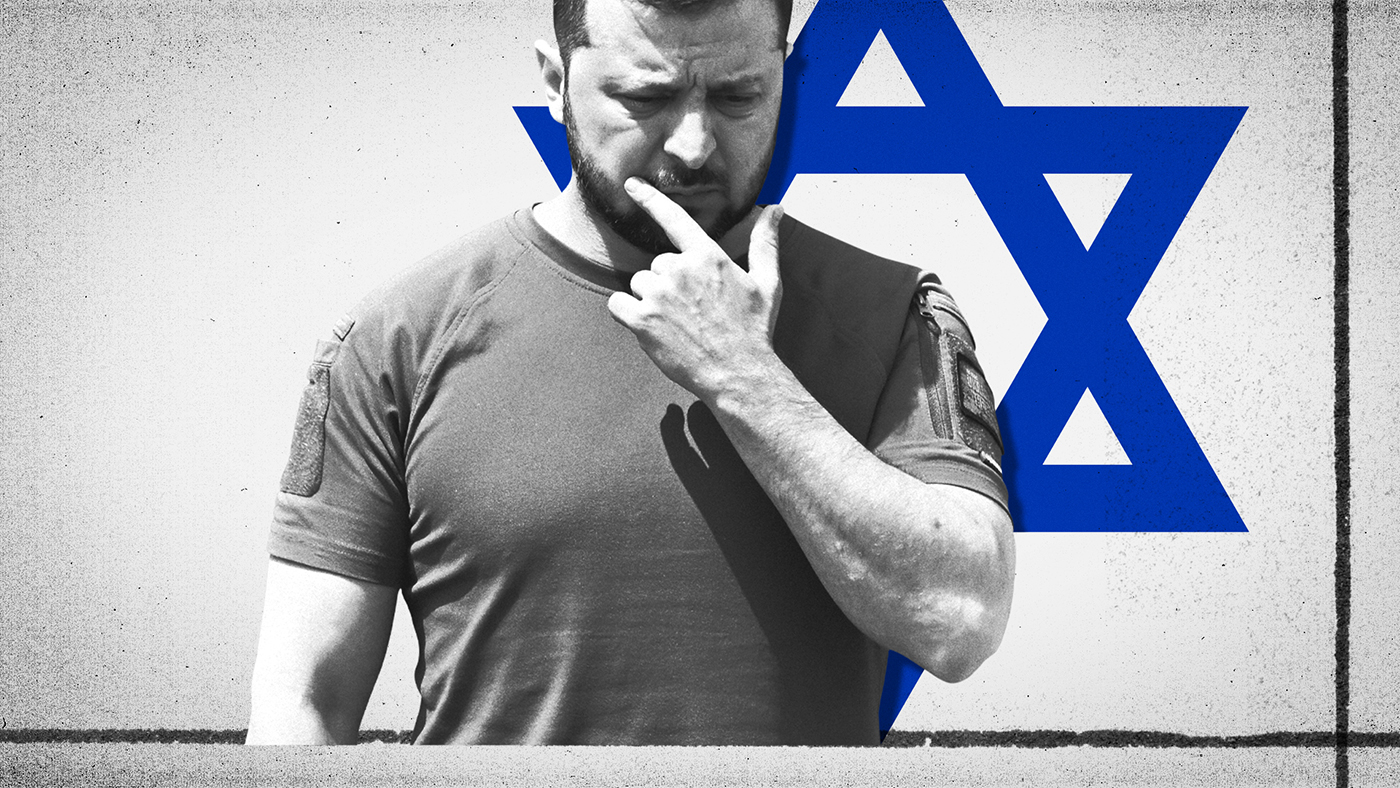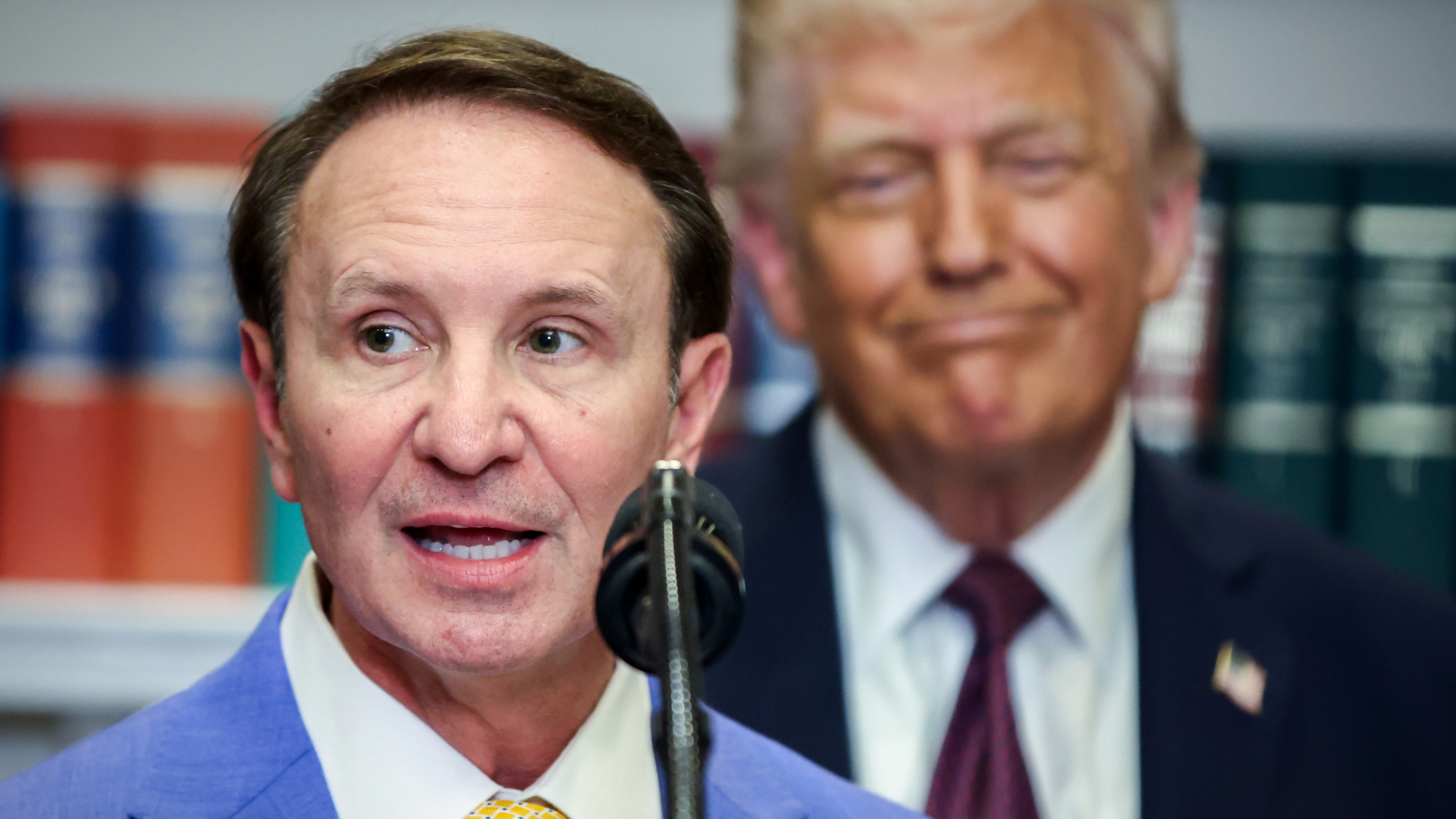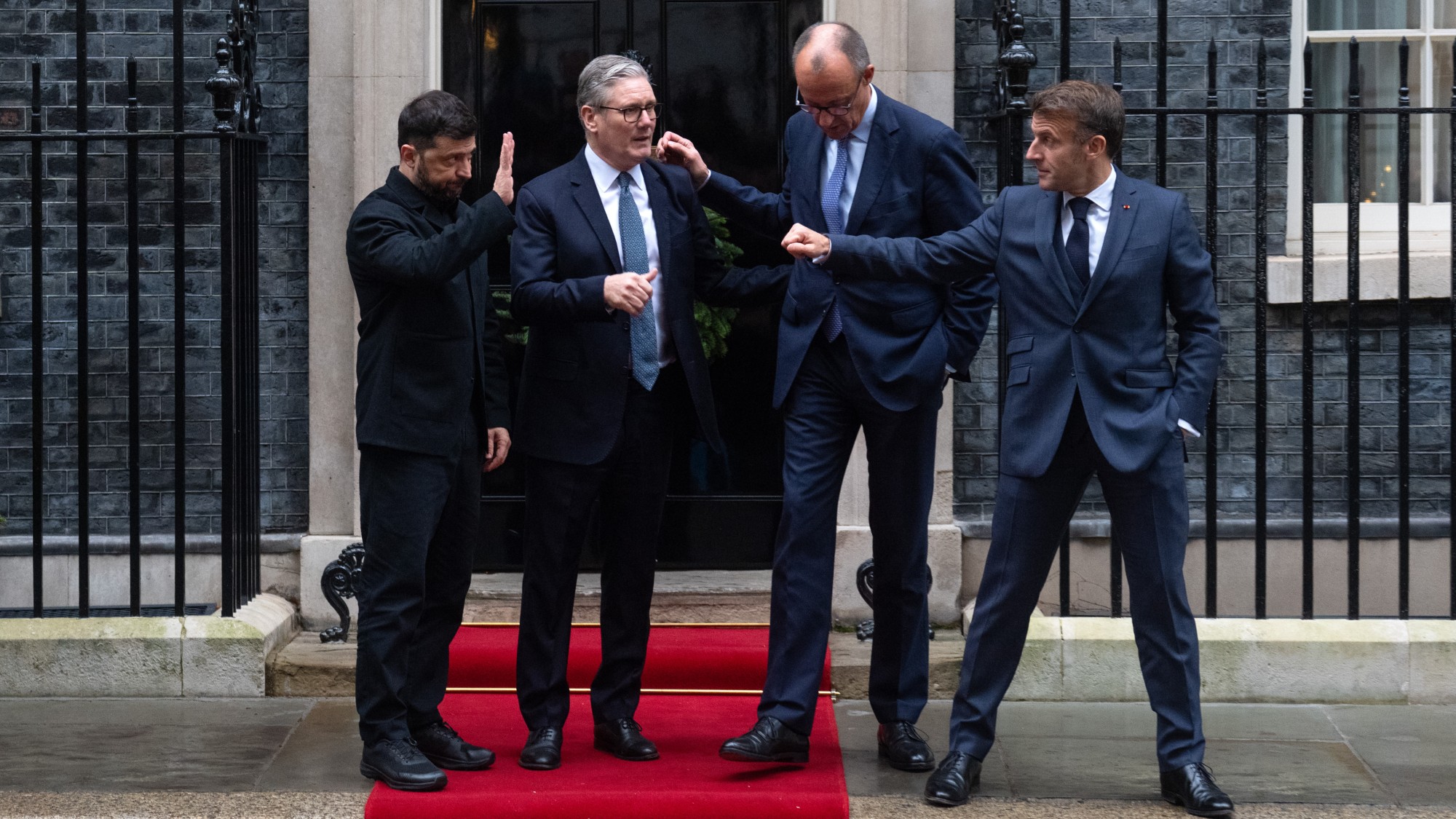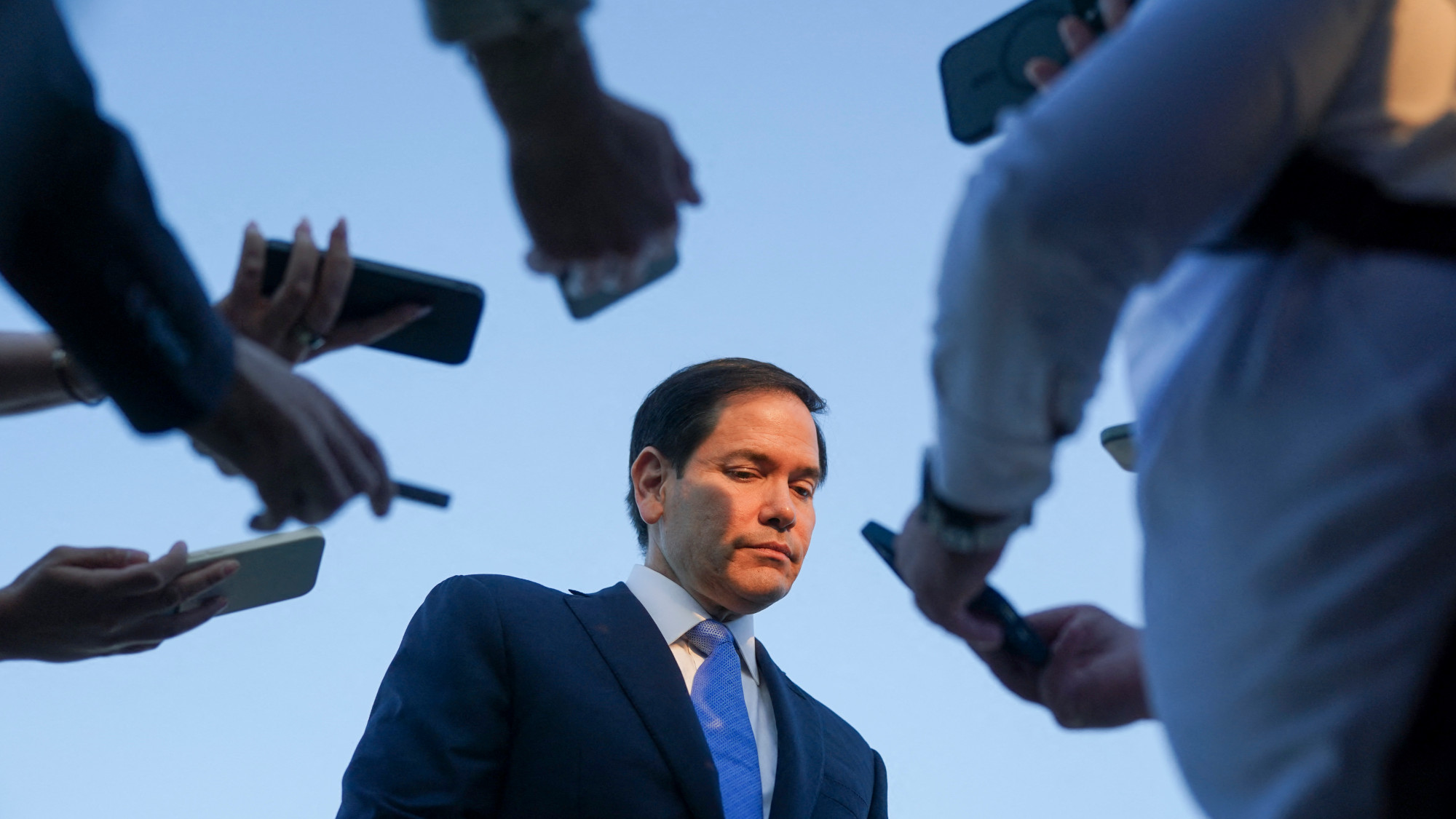Is the 'Israel model' right for Ukraine?
Kyiv wants NATO membership. The U.S. is considering an alternative.


A free daily email with the biggest news stories of the day – and the best features from TheWeek.com
You are now subscribed
Your newsletter sign-up was successful
NATO won't be welcoming Ukraine as a new member — not, at least, as long as there is a war on. But that doesn't mean Kyiv will be left to its own devices. The Wall Street Journal reported that the U.S. and other Western countries are looking to the "Israel model" as a way to shore up Ukraine's defenses over the long term. "Israel isn't a member of NATO," but the country "has enjoyed a special relationship with the U.S." that has long made it flush with American aid and weaponry.
The Israel model would make Ukraine "strong enough to deter any future Russian adventurism" but still leave the United States room to avoid direct conflict with Russia, Duke University's Peter D. Feaver wrote at Foreign Policy. The option "maximizes the role the West has most enthusiastically embraced" — equipping and training Ukraine's forces — while minimizing the possibility that NATO forces could end up "fighting and dying" in Ukraine.
"Critically" the New York Times reported, the Israel model for Ukraine "would avoid a provision like NATO's Article 5, which declares that an attack against one member state is an attack against them all." The big question: Would Israel's example help Ukraine deter future Russian attacks?
The Week
Escape your echo chamber. Get the facts behind the news, plus analysis from multiple perspectives.

Sign up for The Week's Free Newsletters
From our morning news briefing to a weekly Good News Newsletter, get the best of The Week delivered directly to your inbox.
From our morning news briefing to a weekly Good News Newsletter, get the best of The Week delivered directly to your inbox.
What the commentators are saying
"It's a testament to Israel's success at defending itself that friends of Ukraine invoke it as a security model," Jason Willick wrote for the Washington Post. One advantage of the model for Ukraine is that America's non-treaty allies "have more freedom to make their own foreign-policy decisions." Israel, for example, has a history of "acting aggressively and unilaterally" against perceived threats. American leaders haven't always enjoyed that independence. If the West goes with the Israel model for Ukraine, it "should be clear-eyed about what it means."
Israel has one thing that Ukraine doesn't, Eliot Cohen wrote at The Atlantic: A nuclear arsenal. The U.S. shouldn't want Ukraine to go down the road of developing its own nuclear weapons. That would only invite more conflict: Russians might try to strike that program preemptively, and Ukraine in turn might be tempted to display its nuclear capabilities. "That is an outcome no one should want." President Biden should take the lead in welcoming Ukraine to NATO unless "he prefers to be the father of the Ukrainian atom bomb."
"Granting NATO membership to Ukraine is critical to ensuring it wins the war against Russia quickly and decisively," Ian Brzezinski wrote for the Atlantic Council. U.S. assistance to Israel "has been critical to Israel's survival" but "Israel's adversaries in the Islamic world are not major powers." That means Ukraine is far more vulnerable, and far more in need of the alliance's protection. The Israel model would leave Ukraine "indefinitely in the gray zone of insecurity."
"The Israel model is more viable than NATO membership, and may indeed be preferable to it," Emma Ashford and Kelly A. Grieco wrote for the Stimson Center. But that model might be no less threatening to Russia than NATO membership. And the example of Israel suggests using that example in Ukraine will come with "headaches" for U.S. policymakers. Even with the risks, the Israel model might be the "best of the bad options" going forward.
A free daily email with the biggest news stories of the day – and the best features from TheWeek.com
What's next
Ukrainian President Volodymyr Zelenskyy has made clear his desire for NATO membership, but NPR reported he didn't get that at the recent alliance summit. Instead, NATO is holding out the promise of future Ukrainian membership after the war is over. In the meantime, Zelenskyy received renewed pledges of Israel-like Western support. "The one thing Zelenskyy understands now is that whether or not he's in NATO now is not relevant, as long as he has the commitments," Biden said.
The Israel model may avoid committing the U.S. to a direct defense. But, as Feaver noted at Foreign Policy, it won't come cheap. (Assistance to Israel usually comes with a $2-4 billion annual price tag.) America will probably be entangled with Ukraine for a long time to come. Whether it chooses NATO membership or merely massive military aid, "the demands on the United States are considerable going forward."
Joel Mathis is a writer with 30 years of newspaper and online journalism experience. His work also regularly appears in National Geographic and The Kansas City Star. His awards include best online commentary at the Online News Association and (twice) at the City and Regional Magazine Association.
-
 6 exquisite homes with vast acreage
6 exquisite homes with vast acreageFeature Featuring an off-the-grid contemporary home in New Mexico and lakefront farmhouse in Massachusetts
-
 Film reviews: ‘Wuthering Heights,’ ‘Good Luck, Have Fun, Don’t Die,’ and ‘Sirat’
Film reviews: ‘Wuthering Heights,’ ‘Good Luck, Have Fun, Don’t Die,’ and ‘Sirat’Feature An inconvenient love torments a would-be couple, a gonzo time traveler seeks to save humanity from AI, and a father’s desperate search goes deeply sideways
-
 Political cartoons for February 16
Political cartoons for February 16Cartoons Monday’s political cartoons include President's Day, a valentine from the Epstein files, and more
-
 Is the American era officially over?
Is the American era officially over?Talking Points Trump’s trade wars and Greenland push are alienating old allies
-
 Trump’s Greenland ambitions push NATO to the edge
Trump’s Greenland ambitions push NATO to the edgeTalking Points The military alliance is facing its worst-ever crisis
-
 Can Starmer continue to walk the Trump tightrope?
Can Starmer continue to walk the Trump tightrope?Today's Big Question PM condemns US tariff threat but is less confrontational than some European allies
-
 Trump considers giving Ukraine a security guarantee
Trump considers giving Ukraine a security guaranteeTalking Points Zelenskyy says it is a requirement for peace. Will Putin go along?
-
 Vance’s ‘next move will reveal whether the conservative movement can move past Trump’
Vance’s ‘next move will reveal whether the conservative movement can move past Trump’Instant Opinion Opinion, comment and editorials of the day
-
 Danes ‘outraged’ at revived Trump Greenland push
Danes ‘outraged’ at revived Trump Greenland pushSpeed Read
-
 Will there be peace before Christmas in Ukraine?
Will there be peace before Christmas in Ukraine?Today's Big Question Discussions over the weekend could see a unified set of proposals from EU, UK and US to present to Moscow
-
 Ukraine and Rubio rewrite Russia’s peace plan
Ukraine and Rubio rewrite Russia’s peace planFeature The only explanation for this confusing series of events is that ‘rival factions’ within the White House fought over the peace plan ‘and made a mess of it’
